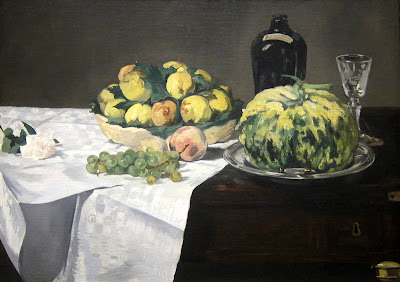Assignment
#4 Rossy Jerez
Night Ghost
(Nachtgespenst)
When the housewife chains the hallway door at
night, I’m standing right outside.
Without hurry, I file the chain away, and there
I am.
As the daughter is putting on her nightgown, I
enter her room.
I feel sorry for her.
I’m the night ghost, your sweet night ghost,
I wake you up each time you call me your darling.
Don’t be so scared, it’s only me waking you.
And after you have been uncovered,
you will get tucked in again.
When I climb through the window,
I have no interest in taking your jewels,
Only your ivory skin appeals to me.
As a night ghost I don’t take any shiny jewels;
only enough for the return fare.
English
My interpretation of this song is that when the women goes to bed at
night with her husband by
her side, calling him
darling. He disappears at night checking on her and making sure that she is
Sound asleep before he
leaves out the window at night, not leaving any evidence of his disappearance.
He returns before dawn
when she awakes.
German
Meine Interpretation dieses
Liedesist, dasswenn die Frauen zuBettgeht in der Nachtmitihrem Mann durch
ihrerSeite, indemerihnLiebling.
Erverschwindet in der Nacht auf ihreÜberprüfung und dafürsorgen, dasssie
Eingeschlafen, bevorergehtausdemFenster
in der Nacht, keineBeweisefürseinVerschwindennichtverlassen.
Erkehrtvor der Morgendämmerung,
wennsieerwacht.
No Time (KeineZeit)
Rossy Jerez
There may still be those who live unhurried lives
and don’t care about the hectic pace of these times.
Those who are not yet wildly obsessed
as they devour food from vending machines and make themselves sick.
However, in these frantic times, you meet few of these unhurried people.
Nowadays you stand at the vending machine,
with the token in your trembling paws.
You insert the coin, the tray revolves, and you take some bread.
Then
you eat the roll at a frantic pace,
because hundreds of others are right behind you.
You chew and you chew without peace and rest
because there is a voice telling you:
"Insert token, take out bread,
for the food might soon be sold out."
One eats without finesse.
English
My
interpretation of this song is that people are rushing to eat on their lunch
hours. They running to get to vending machine before the food runs out. They
eat in a rush to get back to work before their
time is
up.
German
Meine Interpretation dieses
Liedesist, dass Menschen hetzen, um in der MittagsStundenessen.
SieläuftbiszumAutomatenzubekommen, bevor das Essen ausgeht. Sieessen in Eile,
um wiederzuarbeiten, bevorihre
Zeitist um.
Paragraph 175 (Interpretation)
English
This is related to Night Ghost because in my interpretation
is that the women goes to bed at night with her husband she not knowing he is a sexual predator who preys
at night leaving out the through the window to molest other individual and
returning by dawn before his wife awakes.
German
Dies istimZusammenhangmitNachtgeist, weil in meiner
Interpretation ist, dass die Frauen zuBettgeht in der Nachtmitihrem Mann
nichtzuwissen, eristeinsexuellesRaubtier, das in der NachtjagtWeglassen der
durch das FensterzuanderenEinzelbelästigen und die
RückkehrimMorgengrauenvorseinem Frau erwacht.



